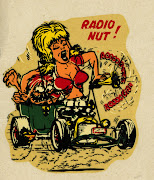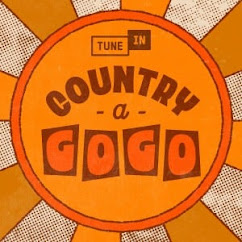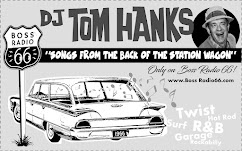Here it is, the final day of Joe Tex Month, and we have arrived at Joe Tex's final LP - He Who Is Without Funk Cast the First Stone. After this record, he had a few 12" singles before his untimely death at 49, from a heart attack.
Despite being relatively clean for his entire life, apparently Joe was partying too hard in the late 70s and early 80s. According to Buddy Killen, "During his last four years he staged a marathon of self-abuse. It was as if he was trying to make up for lost time."
Some of the 70s tendency to overindulgence perhaps could explain the inconsistent nature of He Who Is Without Funk.
For the most part the songs are just a generic ode to the power of funk and there's more relentless vamping than camping it up. There's a disco remake of "Hold What You're Got". But there is one true, crazed bit of Texian genius,
THE TITLE TRACK. It ties in many of the strands of JT's career and serves as a fitting closer to the month.
There is a woman at a disco. She has been dancing. She's started to sweat. And she's started to stink. The rest of the dancers, repulsed by her body odor, decide to stone her to death to get rid of her foulness. Suddenly Joe appears as some kind of Disco Jesus, and teaches them all a lesson in dancefloor etiquette. He argues that all who enter the disco sweat, and all who sweat get "funky", and so he who is without funk should cast the first stone. "Hit her with the rock!" He challenges. "Bust upside her head if you can!" Remember - this is a man who has been busting people upside their head since his first single. You can't say Joe didn't learn a thing or two in his life in soul.
Unable to argue with this logic, the dancers agree to dance together in stinky peace, and JT leaves them with the 10 commandments of the dancefloor.
And now, because I have been to the mountain this last month, I've come back with those 10 commandments, slightly retranslated to be more Ichiban appropriate. Hey, retranslating scripture to the advantage of the translating agency is common practice, so I figure I'm golden.
BEHOLD & LIVETH BY THESE WORDS, THOU ICHIBANNERS:
"1. If thou did not want to get funky, thou never should have got on the dancefloor.
2. Surely thou kneweth thou wouldeth get funky, if ever thy got on the dancefloor.
3. We all sweateth and doeth get stanky whenever we get on a dancefloor.
4. We should not hate, love thee one another, get on down on the dancefloor.
5. Do not stone, love thee one another, get on down on the dancefloor.
6. Now the time cometh, and so I must goeth - to check on the other dancefloors.
7. When I returneth, I want you all to be getting down on the dancefloor.
8. Behold I cometh when thou not knoweth, so get on down on the dancefloor.
9. The music is funky, and it sure is goodeth, get on down on the dancefloor.
10. Peace be unto thee my people, get on down on the dancefloor.
FUNK UP THE DANCEFLOOR!"
What can be said in response to that but AMEN?
Thanks to all the great Ichiban bloggers and commentators for teaching me so much about my favorite soul artist this month. It's been great to witness the power of an aggregate group of bloggers first-hand.
We now return you to your regularly scheduled jungle 45 of the week, already in progress.






+-+Prisoner+Of+Love.jpg)












































